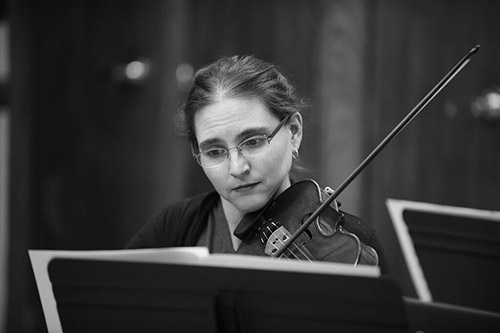
As the thesis of “Or Amim: An Alternative to Torah U’Madda” by Rabbi Dr. Gil S. Perl (December 12, 2019) states, it is indeed a kiddush Hashem to live as Jews and practice Jewish ethical principles in the greater community.
However, it is not necessary to choose between being an ohr amim or Torah U’Madda; on the contrary, Torah U’Madda facilitates the ability to be an ohr amim and, therefore, for that and other reasons, Torah U’Madda is surely worth further pursuit.
Though not Orthodox, my parents expressed firm beliefs in God and the importance of faithfulness to Jewish values and to living a Jewish life, and seamlessly incorporated this with their intellectual pursuits. My mother was (and is) always reading history, and impressed upon me the importance of nuance and context in understanding not just history but contemporary life. My father, who is a physicist, would sit with me in our backyard at night and, while looking up at the stars, would tell me about the age of the universe, about the speed of light and the theory of relativity, filling me with awe for God’s wonderful creation. My father also has made it clear to me many times that he cannot help but believe in God, given the laws of physics that govern the universe.
Both of my parents are also musicians, and had me begin violin lessons at the age of four. Since then, the violin became and continues to be an integral part of my life. God’s presence is palpable to me when playing and listening to beautiful music, as well as upon seeing my violin students develop their own musical talents. The choral movement of Beethoven’s Ninth Symphony always brings me to tears. Through my study of music history, I learned Beethoven was completely deaf by the time he composed it and he was nearing the end of his difficult life—and yet it is a piece of triumphant joy, celebrating the brotherhood and sisterhood of humanity. There is Godliness in Beethoven, and Bach, and the great art and music and dance of all cultures that bind people together.
My childhood experience brings to mind what Maimonides writes in his Mishneh Torah, Hilchot Yesodei HaTorah (Laws of the Foundations of the Torah), Ch. 2, Halacha 2:
“What is the path [to attain] love and fear of Him? When a person contemplates His wondrous and great deeds and creations and appreciates His infinite wisdom that surpasses all comparison, he will immediately love, praise and glorify [Him], yearning with tremendous desire to know [God’s] great name, as David stated: ‘My soul thirsts for the Lord, for the living God’ [Psalms 42:3].” (Transl. Eliyahu Touger, from chabad.org)
Hilchot Yesodei HaTorah is in Sefer HaMadda, the introductory section of the Mishneh Torah. Clearly, Maimonides viewed madda not merely as a way to enhance the understanding of Torah, he presents it as part of the very Torah itself.
The Bernard Revel Graduate School of Jewish Studies at Yeshiva University, where I am currently pursuing a doctorate in medieval Jewish history, follows this Maimonidean tradition. I have the privilege of working with brilliant professors who effortlessly combine deep respect for Judaism with rigorous academic critical analysis of Jewish history, law, philosophy and literature. For my part, my relationship with and practice of Judaism has been enhanced by my academic studies, and in turn academia can benefit from an approach to Jewish studies that is imbued with profound appreciation for all Judaism has contributed, and continues to contribute, to the world at large.
It is a disservice to ourselves and to future generations to relinquish the pursuit of Torah uMadda. A serious problem is that it has become Torah o Madda—Torah or secular studies. For example, one of my children recently told me that one of their Judaic studies teachers (whom I greatly admire as an excellent educator) was expressing disdain for the Big Bang theory. The Big Bang is the closest thing we have in science to proof that the universe was created, and hence no conflict with Judaism whatsoever. Maimonides would have been thrilled by this concept, since it unequivocally disproves Aristotle’s theory of primordial matter that was the bane of all religious medieval philosophers, Jewish, Muslim and Christian alike.
How are children to navigate their Judaic and secular curricula if in their Judaic classes the science they are learning is belittled? Would we tolerate the reverse—if the science being taught in Modern Orthodox day schools was ridiculing Torah? When children grow up in this educational setting it creates an untenable cognitive dissonance that leads some to feel they must choose between Torah or Madda. This results in either rejection of Torah observance, which diminishes the impact of Torah in the world, or a rejection of all the good in the secular realm, which is also part of God’s creation. If I am any example, my experience of the Divine, including my observance of Judaism, would be greatly diminished if I did not have music, history, literature or scientific knowledge in my life.
Judaism has survived for millennia because of its adaptability to the times in conjunction with its faithfulness to tradition. My parents’ example of dedication to Judaism in tandem with passionate pursuit of science, literature, history and music established a firm foundation upon which I have built my own Modern Orthodox observance. I fervently hope our community acts upon Maimonides’ teaching and rejects a bifurcated intellectual and spiritual existence by forcing a choice between Torah or Madda. How can we be a “wise and discerning people” and fulfill our mission as an “ohr amim” if we do so?
Jennifer Seligman is currently pursuing a doctorate in medieval Jewish history at Yeshiva University and lives in Fair Lawn, NJ. She is also a certified Suzuki violin teacher.








